Challenging the ‘traditional’: how ‘micro-communities’ can bring about big change
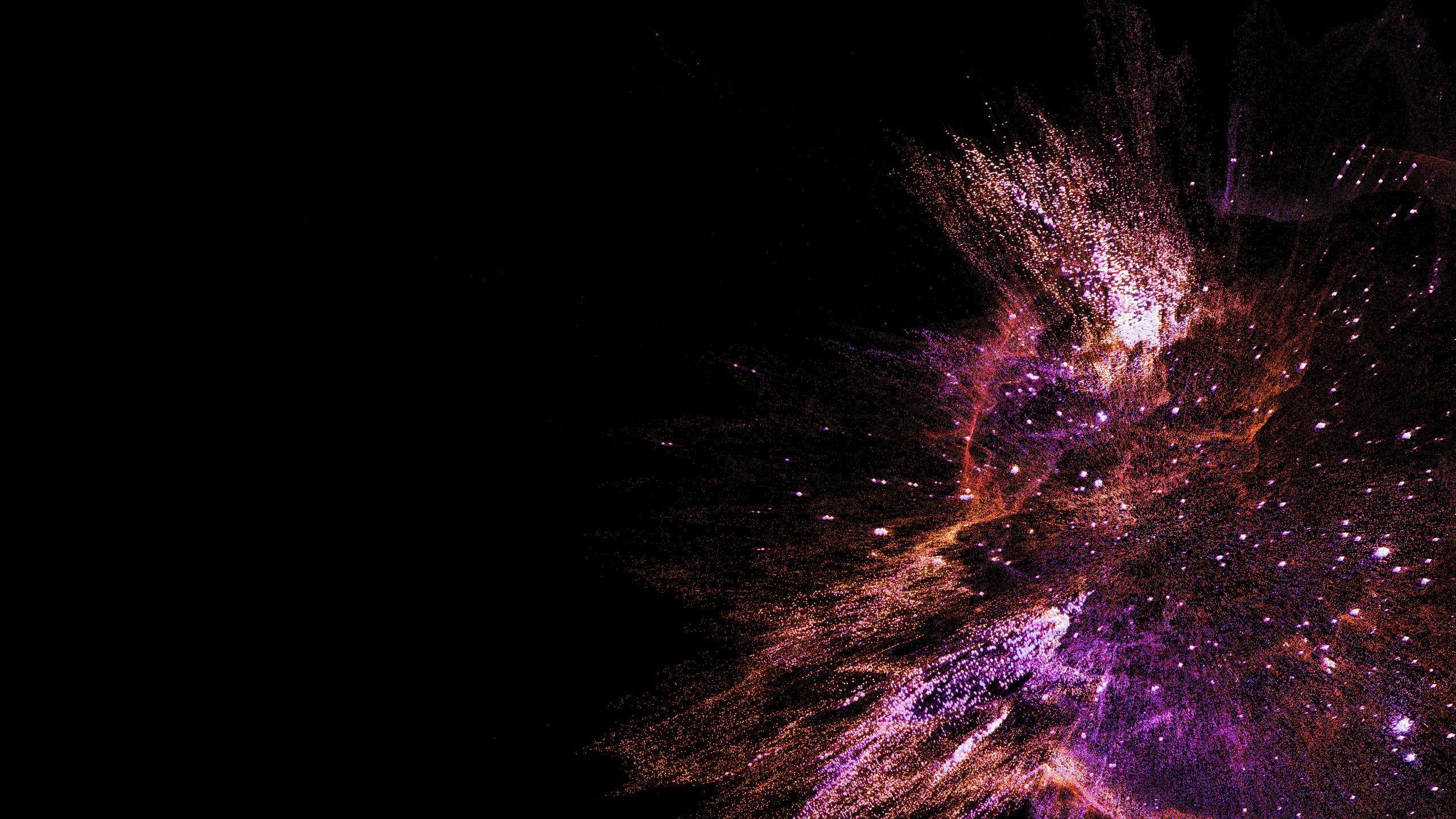
Studying at a large university can be daunting, especially if you feel under-represented amongst the staff and student body. Rachael O’Connor describes how ‘micro-communities’ within enormous institutions can bring students and staff together – and give them the confidence to speak out for broader cultural change that influences and develops the macro-level culture.
I am a woman of working-class heritage. I am ‘first gen’ as a student and a professional. I am Mrs, not Dr. I am an academic on a teaching-focused contract. I have significant levels of privilege. I am a solicitor. I am white. I do not have a disability. I have a permanent job. However, some might describe me as ‘non-traditional’ in the often elitist and hierarchical world of academia.
But it’s my whole-hearted belief that we must abandon the concept of the ‘traditional’ student or staff member. To do this, everyone within our university community must be engaged in a process of unlearning and learning. This will take a lot of work at many levels. It also requires a range of approaches designed to make such change happen.
I’ve been trialling two such approaches in my work across campus here at the University of Leeds. The first is ‘reverse mentoring’, where students mentor staff on issues connected to students’ lived experiences. The second level to that is ‘co-design’, where students collaborate with staff and peers to design their own reverse mentoring scheme to improve students’ experiences within our university.
These two approaches combined work to build ‘micro-communities’. Here at Leeds, there’s a strong commitment to the idea of university as community. As our ten-year strategy puts it:
“We can only make a positive difference to the world if our university community is strong. ... We want all staff to feel recognised and part of the community. Students should be equal partners ... By bringing different cultures and perspectives into our University, we will strengthen our community and our research, education and societal impact.”
But students don’t just arrive at university confident and able to build relationships with staff. Nor do staff automatically know how to work effectively with all students – although that’s often the assumption. These skills are learned – and continuously challenged and developed – through experience.
When we find ourselves within a huge community like a university, we can’t assume everyone will simply feel that they belong – and we know from existing work and research that many students do not feel they belong at all.
That’s where micro-communities can play an important role. Feeling part of a micro-community can contribute towards feelings of belonging and challenge the potentially unwelcoming nature of the behemoth university, expanding our confidence to ‘be’ and to exist in other spaces. Learning as a micro-community in unconventional spaces can have an impact well beyond those spaces.
“You don’t know what you don’t know,” a Black student once told me, in a conversation about the lived experiences of students of colour. It’s stuck with me every day since.
As I’ve learnt through my work with under-represented students, we don’t know the lived experiences of others. But we do have the power to listen to other people, think about what people tell us, learn from what we hear and change in response to what we’ve learnt.
Individual voices and stories matter if a community – large or small – is to be meaningful. So how do we hear them?
Learning to ‘unlearn’
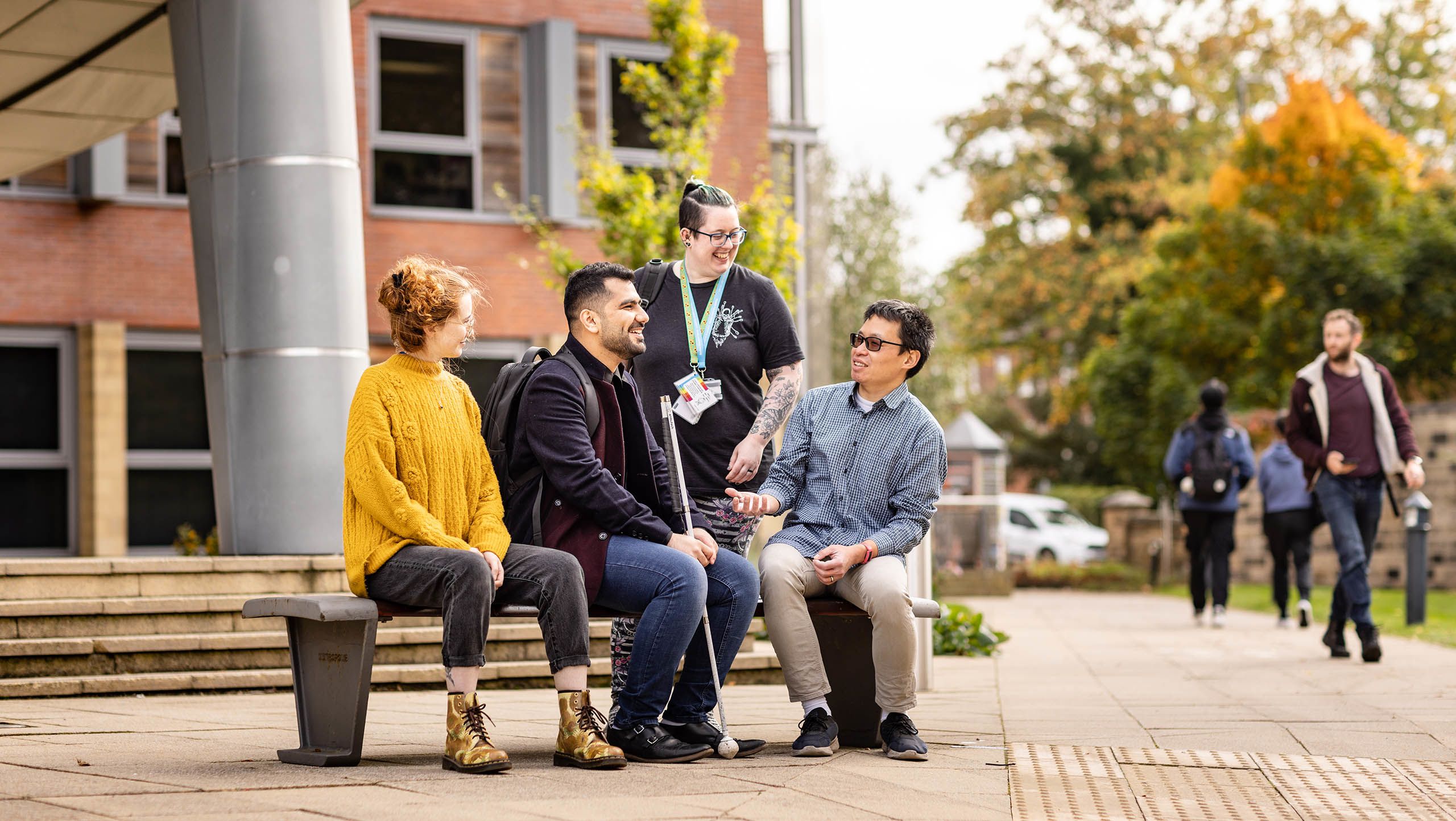
There’s been relatively little research on reverse mentoring within higher education or from a diversity and inclusion perspective. So, I set up a pilot study in the School of Law which saw undergraduate international students mentoring academic and support staff. The mentoring conversations looked at issues like labelling and identity, belonging, failure and resilience.
Following findings from this pilot, it was clear I needed to include student voices from the outset.
My current project saw a team of students from across the Leeds campus co-designing a reverse mentoring project. The scheme is currently running and involves undergraduate mentors mentoring staff members with leadership responsibility for academic personal tutoring in their disciplines. All students involved in the co-design and the mentoring itself self-identify as under-represented.
It’s a three-year project involving participants from over 20 different disciplines. The co-design took up the first year. The second year is the running of the reverse mentoring itself.
The first half of this year is focusing on developing the reverse mentoring relationship through sharing lived experiences. The second half sees pairs of staff and students working together on ideas to improve academic personal tutoring relationships for all students and staff across the university.
So far, through my projects and the Educational Engagement project which I have been supporting, over 70 pairs of staff and students across the campus have tried reverse mentoring for the first time. In itself, this is creating new micro-communities.
Through the action research element of this project, those newly formed micro-communities will influence the much wider community of the university as a whole.
The project deliberately sets aside time and space for deep reflection both within the co-design and through participation as a mentor or mentee.
Students’ experiences of co-designing the project made them challenge previously learned approaches to many things, including working with peers. Working with others has sometimes felt unenjoyable. But, instead of shrugging off such bad experiences as ‘the norm’, students now feel more hopeful about working with people they don’t know – and enjoying the experience.
“I didn’t see myself as that marginalised ... I am a cis white male, but then I’m also LGBTQ and working class … through doing the project, it’s been eye opening because there’s been things that have happened or I have experienced and seen that I hadn’t realised were part of that. I’ve just kind of brushed it off and carried on, so it’s been kind of like a self-reflection journey.” Student co-designer
“Doing things as we’ve always done them no longer feels like an option”
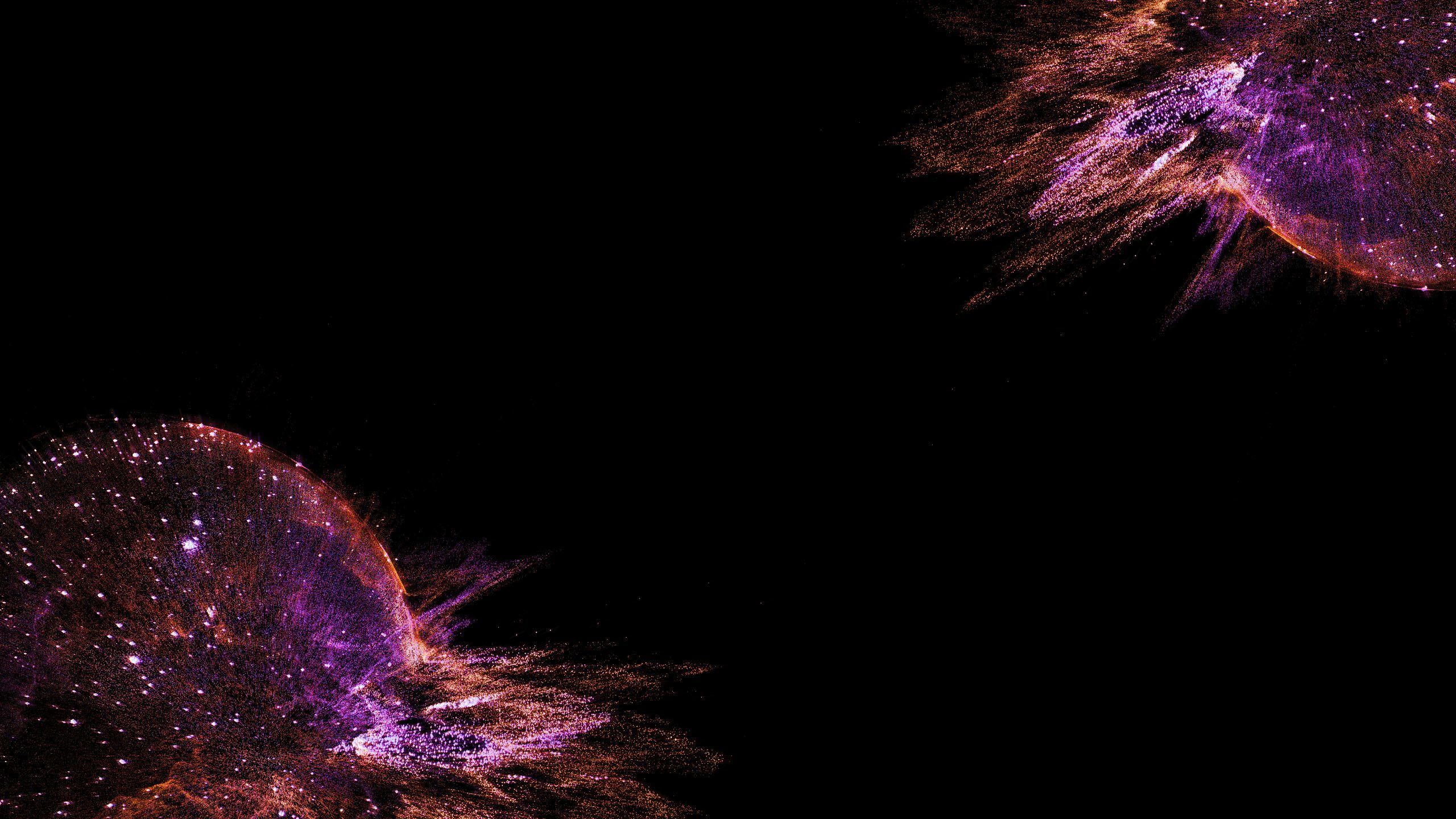
Students have been surprised – sometimes shocked – by what they’ve learned about the challenges some of their peers face. There’s a sense of eyes being opened to diversity and inclusion beyond their own perspectives and echo chambers.
Mentored staff have also found these one-to-one partnerships sparking a deeper curiosity. These intimate conversations have triggered a process of ‘unlearning’. Now staff feel a responsibility to start learning about the student body more broadly, sparked by this one-to-one partnership:
“What the mentoring project brought home to me was just how vast my potential lack of knowledge [is and] … there is a lot that I could learn [that] … could affect how I approach students … they’re an incredibly diverse bunch and I probably don’t know anywhere near enough about them.” Staff mentee
It’s the beginning of a longer learning journey for many. It highlights the risks of resting on our laurels, of assuming that what students need and want hasn’t changed:
“I definitely feel like it’s the start of a learning experience, I don’t think I’ve learnt everything I can … it’s given me that interest to want to know more and to make sure that we are truly reflecting the experiences of all our students … there’s always more work to be done … it’s just important to make sure that we’re still constantly striving.” Staff mentee
Co-design and reverse mentoring flip traditional power dynamics on their head. As we discover insights we previously were not privy to – both as staff and students – doing things as we’ve always done them no longer feels like an option.
Exploring beyond boundaries
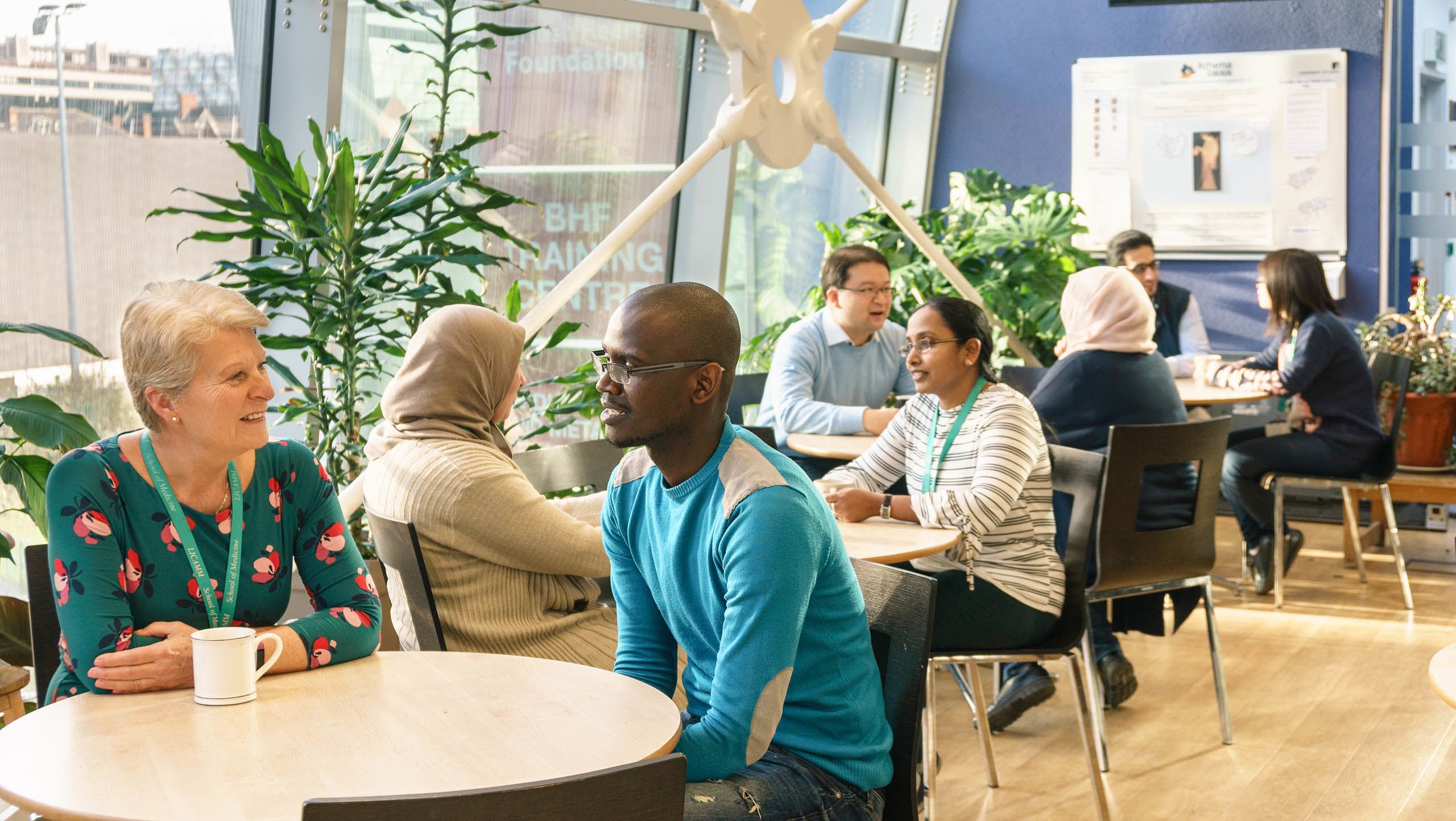
Co-designing with students puts their lived experiences right at the project’s heart. In every co-designed building block of the project, the first questions were: ‘How would you feel?’ and ‘What would you want to see at this point in the project?’
Exploring issues ‘beyond the norm’ of their University studies, learning about themselves and about others in this way felt liberating to students:
“I found all of [the meetings] really … energising just to be in that atmosphere of … everybody being so enthusiastic, everybody being so willing to be open and share things and I think that’s what made us feel like a little community … we’ve talked about things … in a normal lecture or seminar you wouldn’t be talking about.” Student co-designer
Not all students feel able to join student societies or other more mainstream groups. Lack of time or money further prevents some from participating. So co-design work can provide a rare opportunity to meet others beyond their classrooms:
“We all seem to get on so well and we all have the support of each other … the best thing for me was getting to meet people that in the normal course of things, I just wouldn’t have met.” Student co-designer
For staff, reverse mentoring also brings the opportunity to go beyond the usual type of relationship they have with students and to share a different side of themselves:
“It’s a different relationship … with the other students you don’t sit and talk, you don’t say anything about yourself … it’s their space and their time … Whereas in this, you know, because you were required to talk … they get to see you more as a human being.” Staff mentee
Generally, when students first come to these projects, they talk about their sense of under-representation in quite negative terms. Building a micro-community with others who share that sense helps them start to challenge what under-representation means. They have a regular opportunity for authentic conversations around all aspects of their identities.
Through their willingness to be vulnerable with one another, they begin to recognise the power and impact of their voices and experiences. They also see how this could support others.
Even people who aren’t directly involved in the project can become part of a community through a shared sense of under-representation:
“You often feel like you’re invisible or it’s like there’s no one like you … It was just really, really nice to … have that sense of community and … it’s been designed by people who are under-represented right from the start … it’s made to help people in the same situation as us … we can actually make a proper change … you can do something that could really, really impact someone in future. [It] could mean that they have such a better experience at university.” Student co-designer
Individual identity becomes something positive, not something to hide or push down – and a way to become part of a shared identity, if students can be courageous enough to share themselves. The power of the micro-community gives them that courage:
“It always felt easier just to not tell [people about my disability] …. But talking so much about it on the project has really helped improve [and] change that feeling, knowing that people respond positively … that’s been really, really incredibly positive … I’ve even … been talking more about it with people in my wider life … and it’s a really liberating feeling. I don’t feel as ashamed or self-conscious about it as I used to.” Student co-designer
Students begin to see a different side to their sense of under-representation. The project gives them opportunities to develop relationships more broadly:
“It’s definitely improved how I speak to people, how I form relationships and … how I feel about my sense of underrepresentation. Now, I definitely feel like it’s more of a community of under-representation because I can see so many other forms of under-representation. So it’s nice to know you’re not just alone in feeling like this at university. Many people go through this feeling even if they’re not of your background.” Student co-designer
Of course, it’s not all down to students. Staff must also be willing to be vulnerable. One staff participant described how the safety of reverse mentoring supported them to think about being more open with students:
“[When we discussed failures], I decided to give some quite substantial instances … I would find it challenging to talk to anyone about that … I chose those things to talk about … because … I felt the rapport we’d been developing very well … what came to me as I talked about these more deep, professional failures … [was how] could we harness that … when you’re introducing yourself [to students]? … if I was a little bit more open at times about some of my personal failings, that might again help them to see that they’re not alone …” Staff mentee
Walking in someone else’s shoes
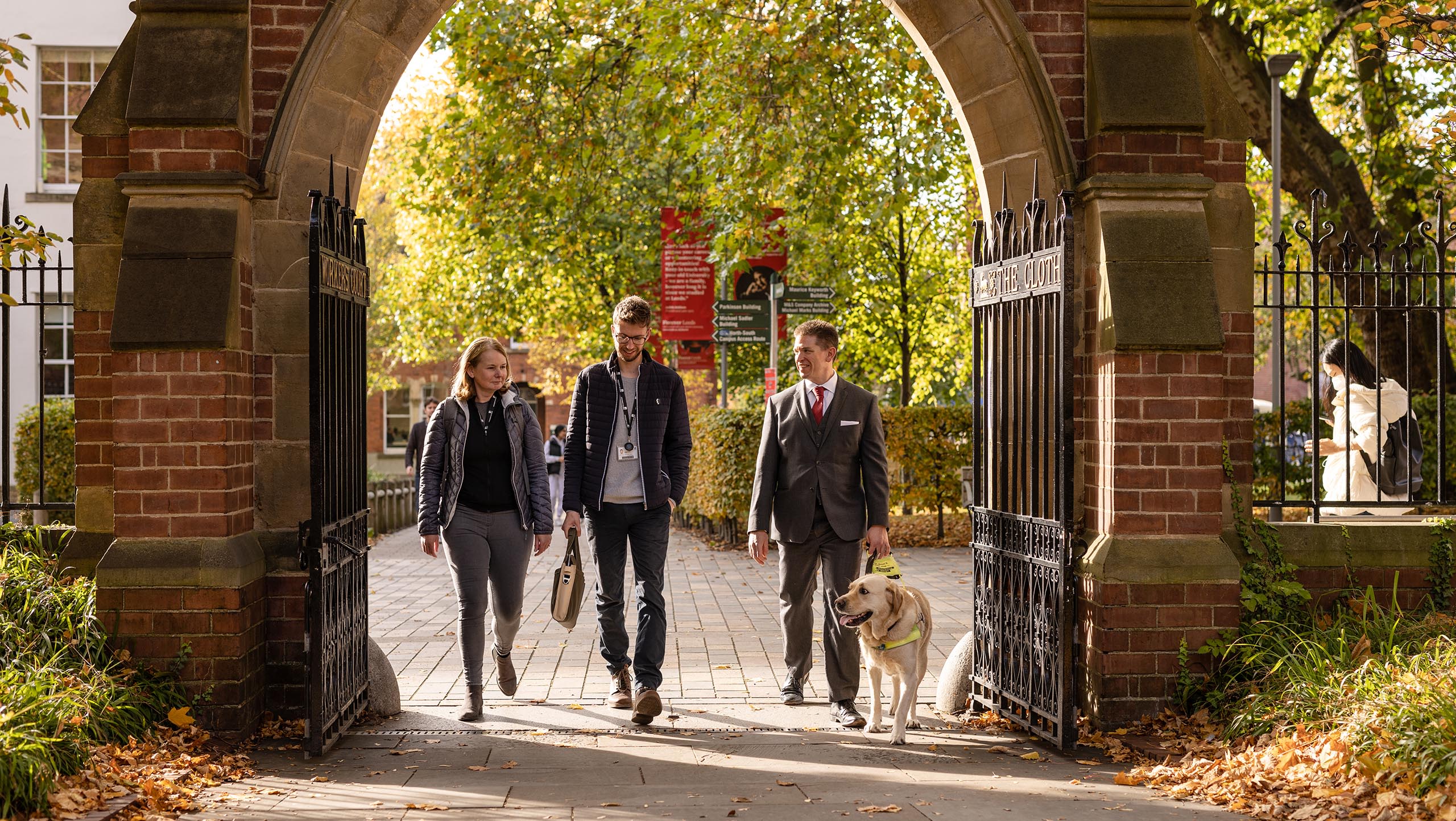
Students often have little meaningful insight into what staff do outside the classroom. Becoming part of the project design team lifted the veil of mystery shrouding academic life:
“It gave me an eye opener into how the university’s structured … I also want to pursue a career in academia and it seemed quite daunting … middle class cis men are like at the head of it, that kind of put me off of it, but to realise that there’s research going on within that’s trying to break down those binaries … it’s given me more confidence that the University as whole is trying to change.” Student co-designer
For their part, staff got an insight into what it’s like to be a student now. This ability to “walk in the shoes of my mentor”, as one staff mentee put it, can be emotionally challenging. Staff simply weren’t aware of many issues:
“I’ve learned a lot about the pressures, the difficulties and the challenges that our students are having … Sometimes, they’re referred to in a really bad way and are called ‘snowflakes’ but actually, some of the students are struggling with a lot.” Staff mentee
Such personal insights are unlike anything staff have previously been privy to:
“It was the first time I’ve seen a student really open up … breaking down those barriers was very important … you’re not going to sit in a classroom and have a 15-20 minute conversation with a student about how they’re feeling … because … you’ve got [20-35] people in the room … you’re not going to have that experience that you’re going to have from a session like this.” Staff mentee
Little things make big differences
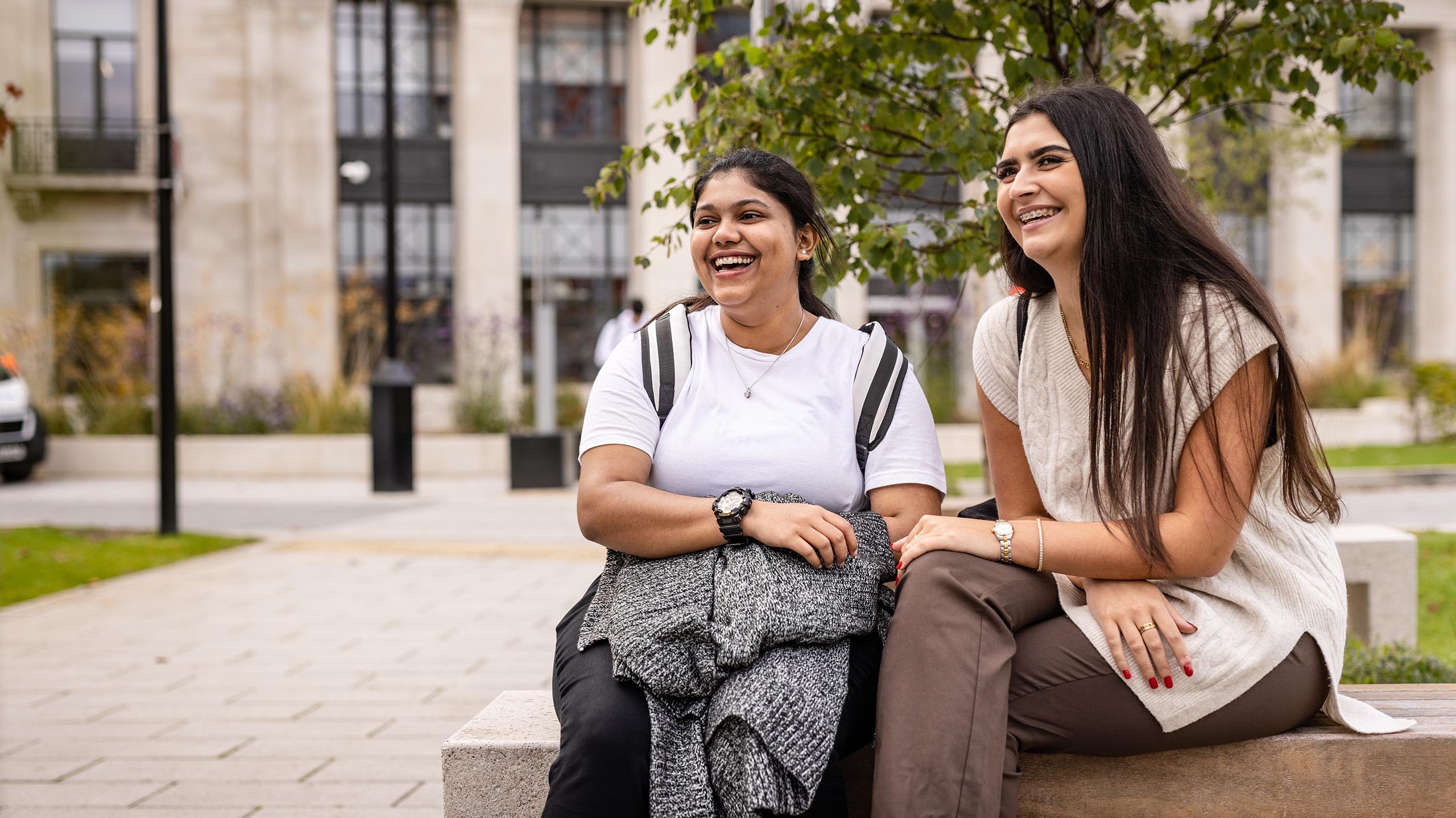
When we think about ‘community’ at a strategic level, it’s easy to overlook smaller interactions and relationships in favour of initiatives for the whole community or large groups. But this may be a mistake.
Micro-communities and connections between individuals help break down damaging traditions – and instigate cultural change from the bottom up. One staff mentee put it like this:
“Whilst the big things can really matter … little daily interactions are almost more significant … [they] possibly make the biggest difference … the project has helped bring that home to me … you can try and make yourself approachable … but … it maybe comes down to those everyday little connections and conversations that can either reinforce a hierarchy or reinforce the fact that you’re not trying to be part of it.” Staff mentee
Reflecting on their experience, students said that learning within a community of under-representation has made them more empathetic.
Being exposed to psychological safe spaces has given them the confidence to explore and call out certain issues. And carving out committed time to be part of this work has helped them listen and learn meaningfully, without attaching their own agendas to what they hear:
“I’ve definitely been able to practise really absorbing other people’s experiences without thinking about my opinion on them. So being able to sit and listen to someone talk and not be processing it in my head and thinking about whether I agree or disagree, just absorbing it and accepting it as their lived experience.” Student co-designer
Learning from such conversations – carried out within trusted micro-communities centred around the lived experiences of those involved – can change our actions and feelings. That in turn can catalyse change for the wider community.
Empathy, the confidence to speak out and the respect to listen and learn are values and skills we should all be striving for if we want to create a culture and community that not only celebrates diversity but also practises positive inclusion behaviours and actions. Diversity alone is not enough.
The value of reciprocity
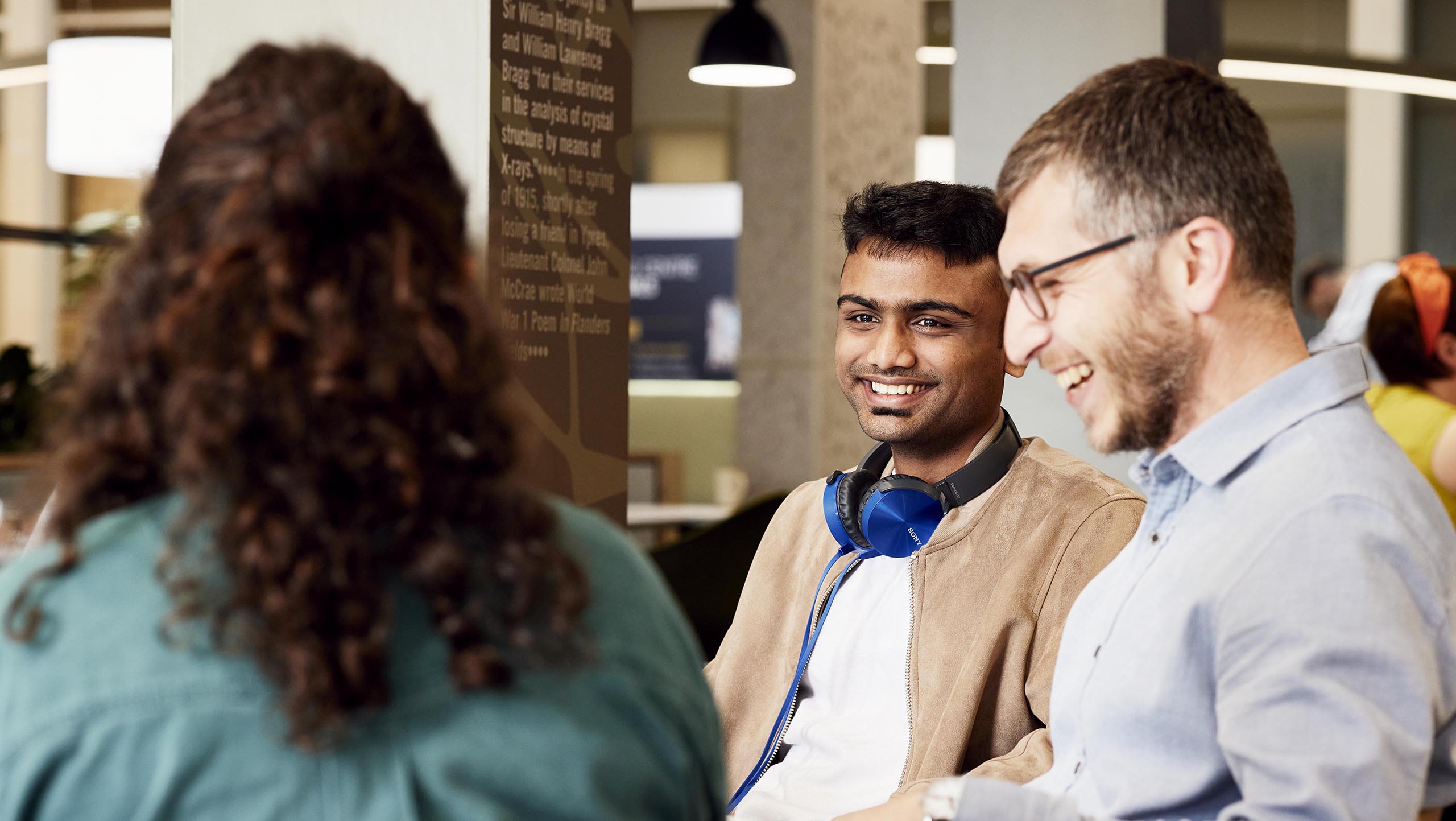
In an extremely large and busy university like Leeds, opportunities for students and staff to talk about how they feel – and to have those feelings reciprocated or meaningfully empathised with – can be rare.
Getting involved in the co-design of a project seeking to enhance the experiences of their peers within the wider community helped students remember they are not alone:
“It’s a very unique sort of bond that you share [on this project] … it’s not just about empathising with [others] … because I know the feelings that they’re feeling, but it’s also understanding that they can empathise with me that creates a really special bond.” Student co-designer
Staff felt they had reconnected with students and were seeing student experiences through a new lens:
“I think [being mentored by a student] is an incredible learning experience. I found it incredibly thought-provoking and interesting … it really challenged the way that I think about the way I work … I really looked forward to it … I think that lots of staff members would benefit from having that chance.” Staff mentee
Many students share a sense of relief at inhabiting a space where they feel they can be truly and authentically ‘themselves’. Within their micro-community, created by and for them, they won’t be judged or ostracised for speaking their truth.
Creating such psychological safety within community spaces demands effort. We can’t just bring people together and say, ‘Talk about why you feel different’ or ‘Why don’t you belong?’ As the facilitator, I had to be willing to bring my own authentic self. To build trust, I must be vulnerable about who I am and honest about who I am not.
To say that I learn a lot from working with these students would be an enormous understatement. As I reflected at the University’s Student Education Conference this year, working with these students has changed me as an educator and a person, for the better.
A core part of the success of our relationship as a micro-community, I believe, comes down to this: mutual respect for one another in terms of our identities, expertise and values. Whilst hierarchy and labels persist beyond our control, we actively worked together to push against those norms and ‘traditions’.
Within their micro-community, they won’t be judged”
Culture change begins with you and me
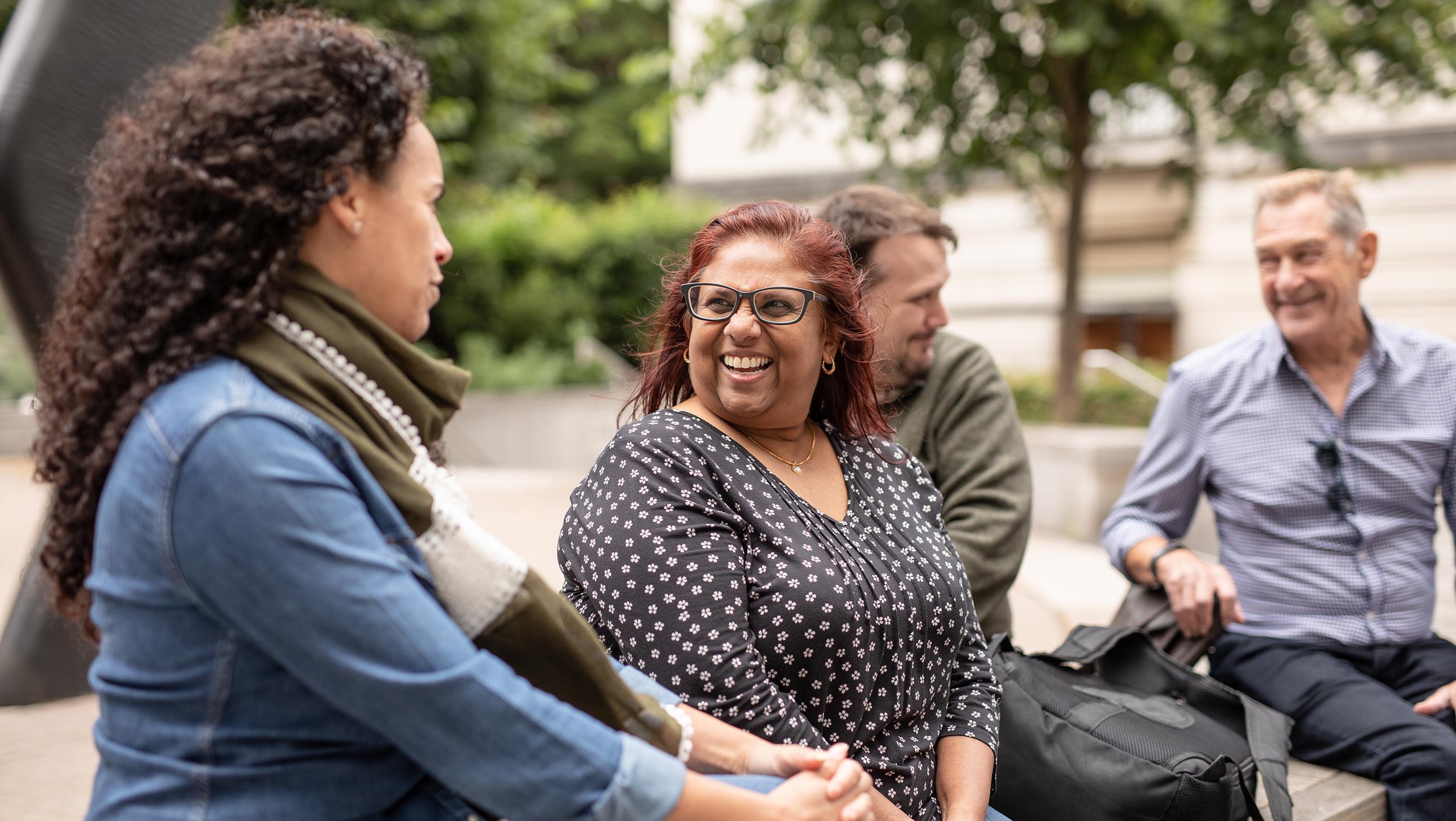
If we’re to change the external world as a university collective, we must put in the work at home too.
Campus should feel like an extension of home for those who inhabit it. But this isn’t the case for many staff and students, and the impact of COVID-19 has only made things worse.
Tackling inequalities on campus is a mammoth challenge but we have to start somewhere. Generating positive micro-communities could be a useful starting point.
Small but individually impactful projects like reverse mentoring and co-design, multiplied across the university, have the potential to create ripple wave effects across broader society.
Micro-communities create power at the peripheries. With their power combined, they can create cultural change.
I end this piece with a plea to everyone who reads this: be a cheerleader – for students, for your colleagues, for your community, for yourself.
We must collectively harness the power of authentic conversations between members of our communities, without letting hierarchical barriers and labels get in the way. From the ‘top down’ and the ‘bottom up’ of a university, it is the job of every single one of us to create a campus where every single one of us belongs and matters.
So what are you going to do tomorrow and the day after that and every day in your practice to make a positive contribution to your community? Be the ripple wave, be the cheerleader, be part of the difference.
“Be a cheerleader – for students, for your colleagues, for your community, for yourself”

